“You’re on the wrong side of history”: Fossil students respond to anti-transgender laws across the country
A number of bills anti-transgender have been put forward, weighing on trans youth across the country.
This article contains mentions suicide and self harm. If you or someone you know may be considering suicide, contact the National Suicide Prevention Lifeline or The Trevor Project.
Across the United States, an epidemic is spreading. Five states have passed laws limiting the ability of transgender youth to play in team sports or receive medical treatment. These bills are an outright attack on trans rights and trans youth. Although none have been proposed in Colorado, representatives of the state have spoken out against bills that would keep LGBTQ+ rights protected, like the Equality Act. Students at Fossil Ridge High School have been affected by these laws, even from afar. The exclusion of trans youth is haunting America, and students are dedicated to taking a stand.
These new laws can mainly be divided into two categories: laws about trans youth and sports, and laws surrounding gender-affirming healthcare for trans youth. States that proposed these bills include Texas, Arkansas (who recently became the first state to bar access to trans healthcare for minors), Florida, and many others. Arguments in support of these bills include a range of topics. Lawmakers in support of barring trans women from participating on sports teams that align with their gender identity argue that they would have an unfair advantage over other players. This has been seen as a futile argument; only 2% of Americans identify as trans, and even fewer are athletes. The American Academy of Pediatrics says that students should be able to play on teams that align with their gender identity, and that this is beneficial to students’ mental health.
There are also bills being proposed that bar youth from being able to access gender-affirming healthcare. Legislators in twenty-one states have proposed bills that block treatment to trans youth. These treatments include puberty blockers, which will halt things like chest growth, deepening voice, and facial hair. It has been described as a “pause button.” Hormone therapies are also being attacked, with the main argument being that these treatments are irreversible, although that claim has been debunked many times. Another argument is that trans youth cannot be trusted to make these decisions since they are young, however, treatments almost always require guardian approval.
Although none of these bills have been proposed in Colorado yet, hurtful comments against the LGBTQ community have reached home. Republic Congresswoman Lauren Boebert has actively spoken out against the Equality Act. If this act was passed, it would protect people in the LGBTQ community from being fired or evicted because of sexuality or gender identity. The Equality Act would also allow trans athletes to compete with the gender they identify with. Bobert has frequently spoken out against this bill at several rallies.
Students at Fossil Ridge High School have been affected by these bills and the comments of lawmakers. Abe Gooch, a sophomore, said that although the bills have not affected him personally, they have hurt his mental health. “I’ve definitely researched them to the point where I’m very upset over the effects that they have on other trans people,” Gooch said.
Bills like the one in Arkansas have been criticized heavily for the way they negatively affect the mental health of trans youth. According to a national survey done by The Trevor Project, over half of trans and non-binary youth have considered suicide, and 21% have attempted suicide. Youth that had access to gender-affirming healthcare and clothing also reported lower rates of suicide compared to those who did not have access.
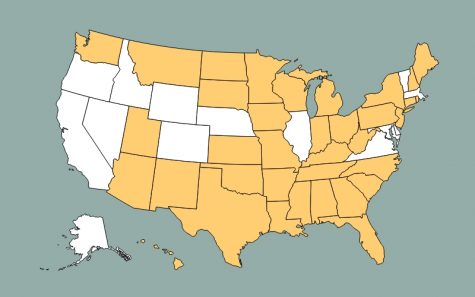
Gooch has experienced the life-saving qualities of gender-affirming healthcare. “Being able to actually transition is really just vital to survival,” Gooch said. Gooch’s twin brother, Adam Gooch, also commented how gender-affirming healthcare helped him. “Yes, transitioning is much more beneficial to not wanting to die,” Gooch said with a laugh.
Dean Royse, also a sophomore, said that access to healthcare has had a huge impact on his mental health. “I can actually talk to people now,” he stated with a smile. Royse has also researched the bills being proposed in other states. “The more politicians think stuff like this is okay, the more it’s gonna spread,” he said. He also commented that the bills being proposed were overt bigotry. “They [lawmakers] aren’t even trying to hide it anymore.”
“We should all just come together as a community and help each other. But this is separating us,” said Quinn Whittington, a sophomore. Whittington mentioned that if laws like these were to come to Colorado, Whittington’s mental health would most likely decline. Whittington has not had any experiences with gender-affirming healthcare, but even changing names and pronouns has helped Whittington.
In 2016, North Carolina proposed a bill which would limit which public restrooms transgender people would use. There was swift retribution against this bill, and it was repealed by the next year. So far there has been no major backlash against these bills. Since the start of 2021, eight bills targeting LGBTQ people have become law, and ten are still awaiting signature. According to the Human Rights Campaign, this is “the worst year for state legislative attacks against LGBTQ people in history.” These bills are making history for all the wrong reasons. They will lead to an uptick in trans youth suicides, and a decline in youth mental health.
Royse’s parting words to lawmakers described the ridiculousness of these bills the best. “Bigotry has never been sustainable. You’re on the wrong side of history, somehow managing to fail an open note test.”
Your donation will support the student journalists of Fossil Ridge High School. Your contribution will allow us to purchase equipment and cover our annual website hosting costs.

Lizzy Camp is a senior and is elated to be entering her final semester as Editor in Chief, alongside Jordan Brownhill. She has spent four years working in the newsroom and has contributed many amazing articles, podcasts, and photos to Etched in Stone. She is excited to continue growing the Etched in...




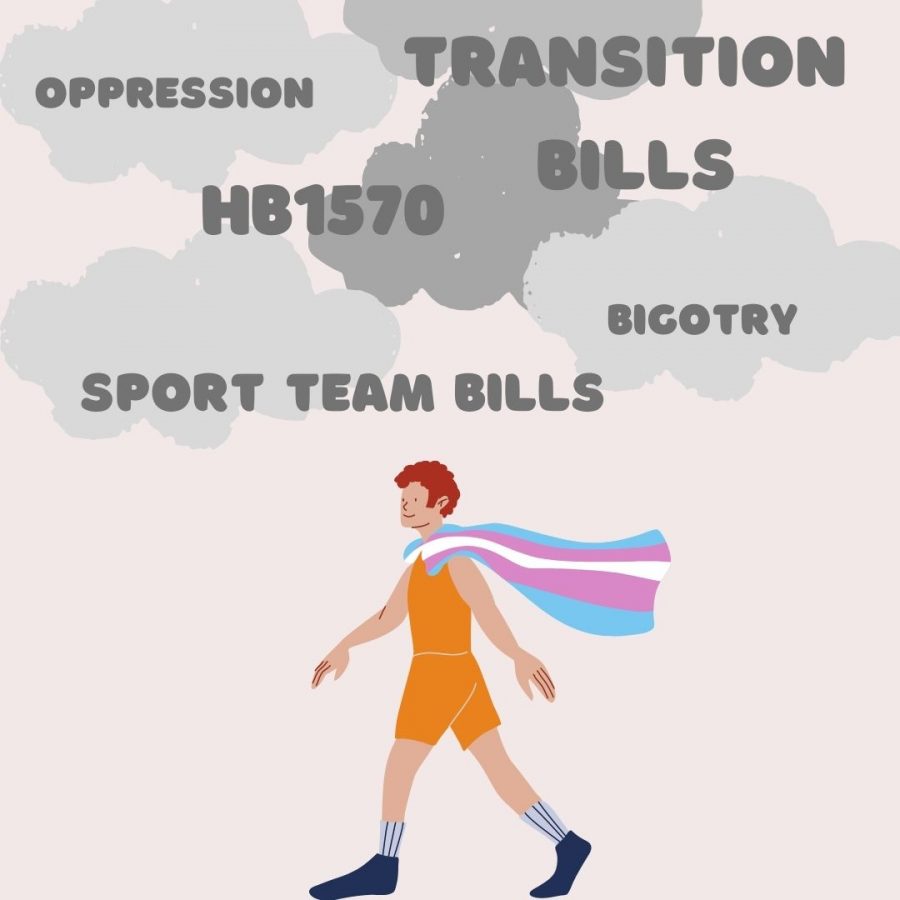
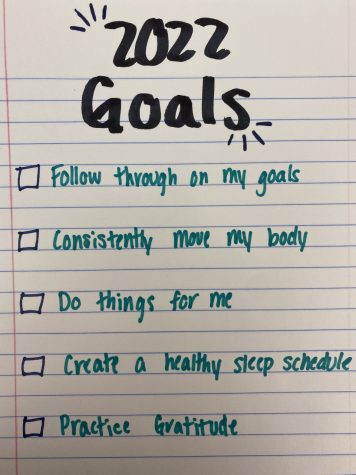
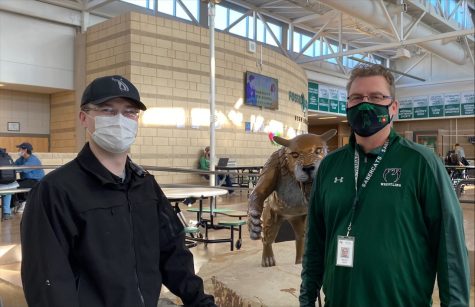

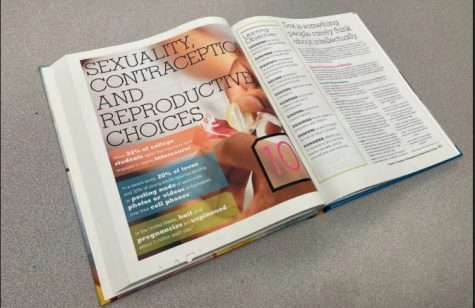




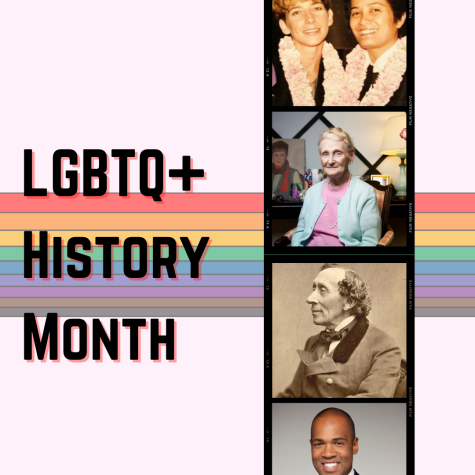

Oliver • Aug 12, 2021 at 11:33 am
These bills being proposed in the states are infuriating, and not really about transgender women having an advantage in sports. What’s even more annoying is that these bills about transgender individuals in sports really just shows how fragile masculinity is for many people. The bill only focuses on transgender women — or those who were born in a masculine body — who decided to do what is best for them and be who they really are. These people went against old societal norms, and many people do not like this. I am proud of those who are protesting against these bills, and as a non-binary individual it makes me happy to see this article.
Max • May 13, 2021 at 2:25 pm
I am a Mental Health advocate, I know how many Trans People feel like they cannot be themselves due to intolerance and hate on both sides of the political spectrum. They want to die because of the things they cannot participate in, such as Sports.
Henry Xiao • May 12, 2021 at 11:04 pm
Max, not only do you ignore the struggles of biological female athletes, you also seem to ignore the struggles of trans people.
First off, saying there is not a biological difference between men and women is stupidity beyond comprehension. I am going to throw some hard facts at you. This conservative rapper messed around and DESTROYED the women’s deadlift record as a recreational lifter: https://www.wqad.com/article/news/local/drone/8-in-the-air/male-rapper-identifying-as-female-informally-breaks-female-dead-lift-record-to-prove-a-point/526-4e1a441e-42e4-417b-9fca-e1cb6a3574f3
The world’s female 100 meter is 10.49 seconds, which wouldn’t even be close to qualifying for the men’s 100m in the Olympics. You are basically saying that 99.9% of women athletes are terrible and lazy because they get blown out by men who are significantly biologically advantaged compared to them. You clearly know nothing about facts regarding female athletes, which is fine, the best of us make mistakes. Learning is the important part.
Now you refuse to acknowledge trans people’s struggles as you claim there is no mental health problem within the community. According to this article, 21% of trans youth attempt suicide, which is a huge tragedy.
Max Beeners • May 12, 2021 at 1:09 pm
Max, I don’t know how you think that is sexist. It is objectively a fact that on average man have significant strength advantages over women. Here is an article you should read about testosterone. https://www.health.harvard.edu/drugs-and-medications/testosterone–what-it-does-and-doesnt-do.
Adrian • May 11, 2021 at 2:53 pm
Max, letting men compete in female sports is sexist, please refrain from assuming that people don’t know what they are talking about.
Max • May 10, 2021 at 1:05 pm
The idea that women are naturally weaker than men is just sexist. Please refrain from calling transgender people mentally ill. I do not talk about issues I know nothing about, I suggest you try to do the same. <3
Adrian • May 10, 2021 at 9:35 am
thanks Henry, you said what I was going to say I also like your solution. As for the rest of the argument I feel like I already responded to that with my other statistic by the heritage foundation
Henry Xiao • May 9, 2021 at 10:58 pm
Ward,
Thanks for your opinion, I am just going to speak on the sports part, Adrian can address the rest of your argument in a civil way.
Trans women are DOMINATING their following sports, here’s an article:https://www.wired.com/story/the-glorious-victories-of-trans-athletes-are-shaking-up-sports/
Evidence from the article: According to ADF legal counsel Christiana Holcomb, two transgender athletes—Miller and another runner, Andraya Yearwood—“have amassed 15 different state championship titles that were once held by nine different girls across the state.” The US Department of Education’s office for civil rights is now investigating the group’s complaint.
It’s fairly objective and factual the physical advantages biological men have over biological women, denying so would harm biological female athletes. I have 0 problems with trans men competing with biological men in every sport there is, what their true gender is a controversial topic I don’t plan on partaking in as I have not done much research currently.
As to the solutions, I would support a league consisting of trans people and show NO discrimination towards them, I don’t claim to speak for anyone other than myself.
Personally, I have no problem with trans people and my prayers are with those suffering from mental health issues.
Ward • May 6, 2021 at 3:03 pm
Adrian, there are some serious issues to your argument. For starters, you assume someone with a bioligically male body has this incredible advantage, but you overlook the basic structure of teams. A transgender girl is not going to fight the opponent entirely on her own and completely demolish them. Not to mention, all teams have diverse talents from their players. One teammate that is particularly strong is not going to give the entire team an advantage. People with biolically female bodies can naturally have more strength as well. And that strength does not make the entire player. There are still techniques to be learned. Having male genitalia does not automatically make you some unstoppable force in sports, and to assume that it is some unfair advantage against trained female athletes is dismissive of the complexity of teams and the capabilities of these athletes. Another issue you seem to face is the incapability to realize that 1. people do not just regularly pretend to be the opposite gender so they can win in sports and that 2. Trans women are women, not just “confused males”. Saying that what makes women women is their body, their reproductive organs and genitals, is misogynistic and gross. What makes a woman and woman is whats on the inside, her brain. The body may be bioligically female but somtimes theres a mixup in the factory and beans get put in a tomato can, you know what I mean? Its not as simple as XX and XY chromosomes. If you’re interested in better understanding that, I’d reccommend reading this article: https://blogs.scientificamerican.com/voices/stop-using-phony-science-to-justify-transphobia/ Heres another article describing the science behind how some people can end up a mind that is a gender opposite their biological sex: https://www.sciencedaily.com/releases/2020/02/200205084203.htm . Being accepted as the gender you are has incredible positive affects on transgender individuals’ mental health. Having one athlete that is a bit stronger than some of the other players (something that is completely acheivable to someone with a bioligally female body) is not worth all the fuss. Sacrificing a student’s mental health and validity in the name of keeping high school sports “fair” is juvenile and bigoted. You say transgender women have an advantage because of their natural strength (which is debunked simply by the existence of the tons of scrawny noodle-armed guys I know) then the same reasoning would mean all strong girl athletes must be kept from their sports, not just transgender individuals. It would rid sports of its diversity among athletes. It’s petty and ultimately unecessary. Oh! And when you told the author of this fantastic article not to speak on behalf of Fossil students, I think you completely missed the meaning of interviews. The author literally went to the Fossil student body and got their opinions, which absolutely gives them the capability to speak on their behalf, especially when actively quoting the students.
Adrian • May 5, 2021 at 9:57 am
How can you be born with the incorrect organs? Is there some sort of scale or medical measurement to see if you are really a women trapped in a male body? The answer is no, its all in the brain and therefore it should not amount to having a physical advantage when competing in sports. My issue with this is that any person can just say that they are a women and then absolutely wreck the competition, since “gender is all in how you feel” what’s to stop a male wrestler to claim he is a women? If we continue to push this narrative on things like sports, then the whole concept of male and female sports will become irrelevant and we will see a huge surge of male domination in sports. Luckily there is people passing bills to prevent things like this from happening yet their is still people calling common sense knowledge bigotry. I think that it is unfair to actual women who want to win in their sports who are now having to face men who call themselves women.
Ward • May 4, 2021 at 2:08 pm
Fantastic article! Really well written dude way to go
Max • May 4, 2021 at 1:39 pm
Adrian, you are missing the point. Men are not competing in women’s sports, Women that just happened to have been born with the incorrect organs are. Trans-women are no less women than the traditional idea of women. It is a shame that only 2% of Trans Youth are able to and willing to compete. I am sad to see cis-gender youth being so rude and using dog whistles when it comes to basic human rights.
Adiran • May 4, 2021 at 11:04 am
Just because the amount of trans youth in sports is 2%, it doesn’t justify them being able to compete in a sport based on a mental confusion. If you are a man and you say you are a women and then you compete in female sports then you will clearly have an advantage. It is unfair to women who train for months in things like track and field to be blown over by some gender confused male who has a physical advantage. Also you say the irreversible effects argument is irrelevant yet you don’t cite a single statistic as to how, here is a clear statistic showing you are wrong on equality act and sex change treatments.
https://www.heritage.org/gender/report/parental-rights-gender-ideology-and-the-equality-act.
Also don’t talk on behalf of Fossil Ridge students, there are plenty if not more people especially females in sports who can tell you that they do not want males competing in female sports.